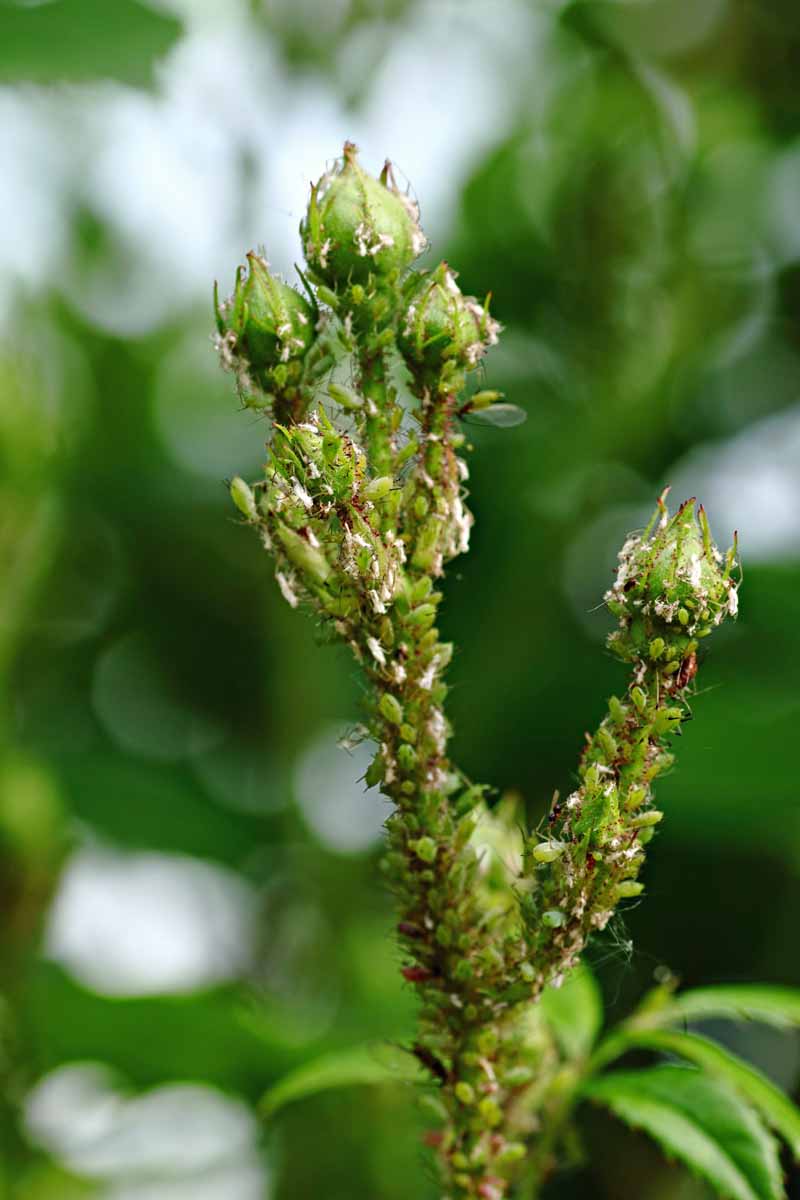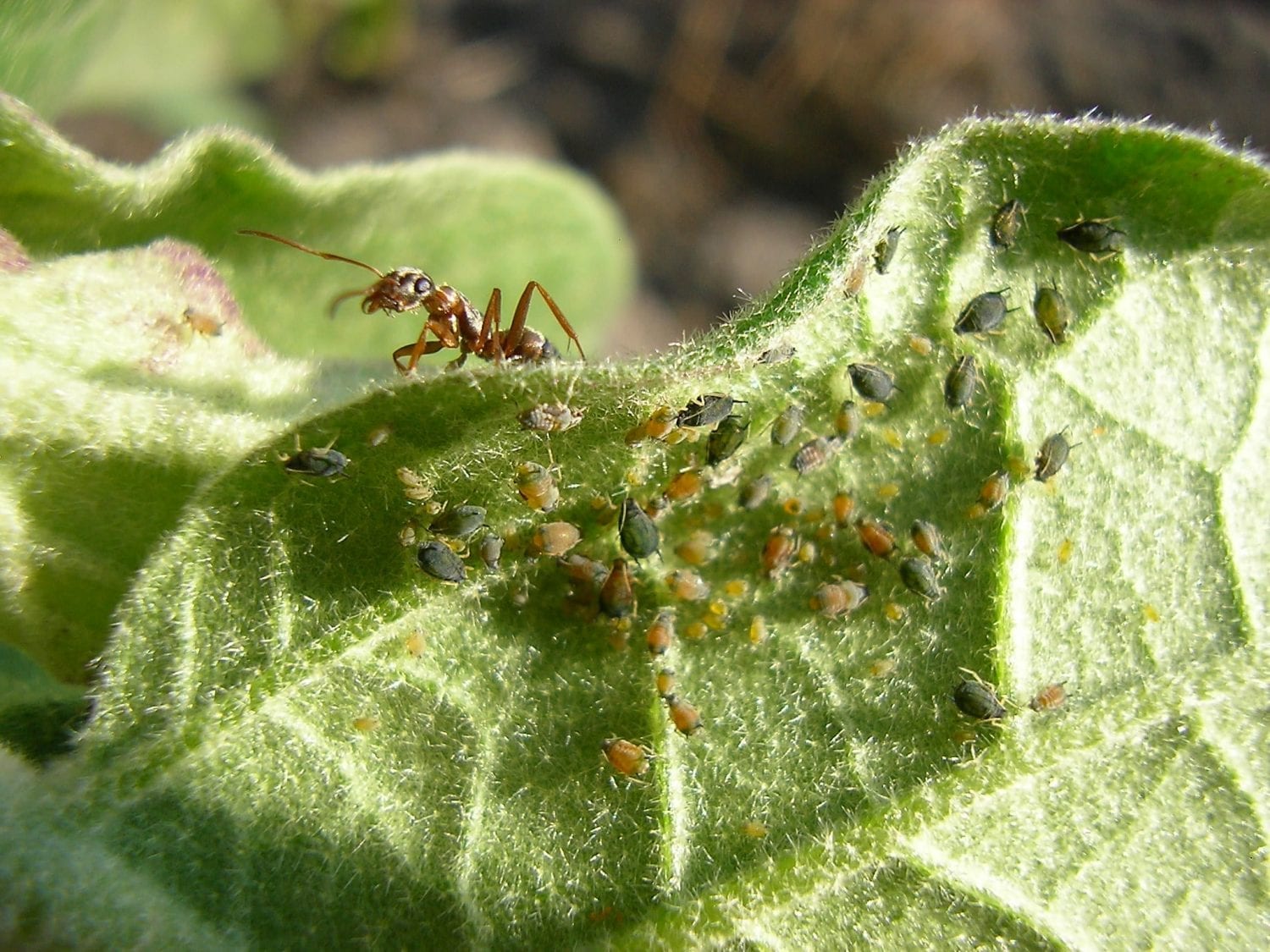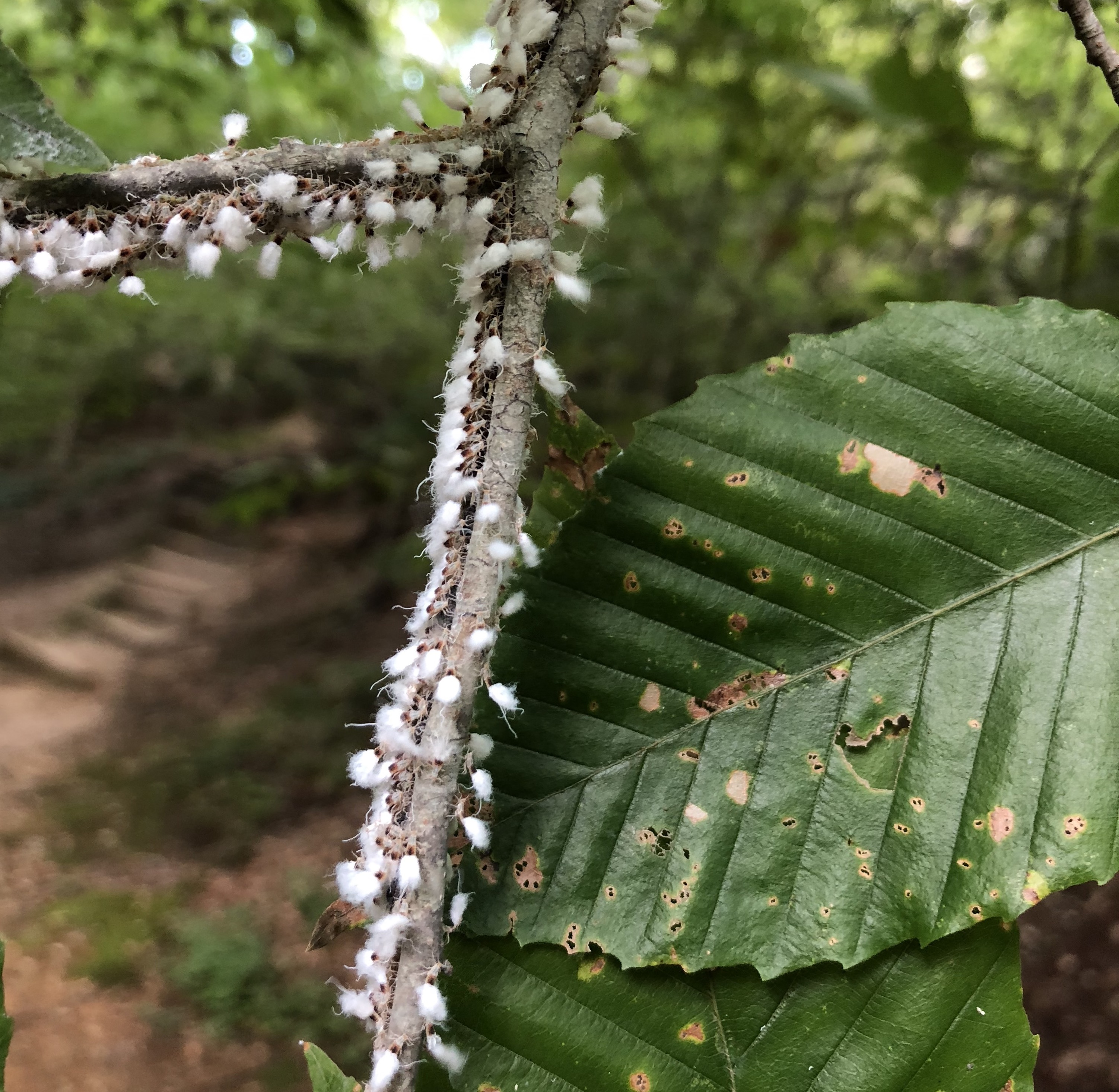Do Woolly Aphids Bite
Woolly aphids live on several different trees and shrubs.

Do woolly aphids bite. If desired you can spot treat where the aphids are most abundant using insecticidal soap or neem oil. They produce a sticky honeydew substance while feeding which promotes sooty mold growth on leaves. Imbricator which are found primarily on branches and twigs p. The saliva of aphids contain toxic compounds that can cause irritation.
However aphids feed on plant growth and bark and occasionally fruit trees such as apple trees. Eriosomatinae are sucking insects that live on plant sap and produce a filamentous waxy white covering which resembles cotton or wool. They are itchy creepy nasty things. Since severe woolly aphid attacks rarely occur there is little need for woolly aphid pesticide for control.
The nymphs often form large cottony masses on twigs for protection from predators. From a distance a woolly aphid colony can appear to be a fuzz or moldy growth on a tree branch. Here is a photo from a posting in our archivesshowing an aphid wolf feasting on its preferred meal aphids. Infestations are sporadic and vary from trees to tree variety to variety and place.
Do wooly aphids bite. Another species that may bite is the acyrthosiphon pisum or pea aphid. The body of the aphid is covered with a white fluffy wax that resembles wool. The name describes what is peculiar about this group.
The fluffy looking stuff is the waxy secretions that cling to the aphids bodies. Woolly aphids are small bugs which attack the bark not the leaves of apple trees by sucking the sap from stems branches and even the main trunk. If left untreated they then progress to the roots of the trees. Wooly aphids do bite.
Those dots are the bodies of the woolly aphids. Generally their numbers are kept low with natural predators like lacewings ladybugs hover flies and parasitic wasps. Pisum bites were documented during an inspection of a laboratory colony. Anyone near an infected snowbell tree can be bitten.
They weaken a tree s vigour and leave it open to attacks by other pests and diseases canker in particular. The adults are winged and move to new locations where they lay egg masses. We have frequently gotten reports from people regarding the sensation of the bite from an aphid wolf and just last week daniel had his own first hand experience that is worth reporting. These garden pests do not sting or bite and are not harmful to humans.


























